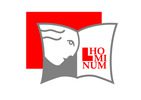-
- The Submitted material must be original, not previously published in other printed publications.
- The structure of the Article should include the following:
article title;
last name, first name, patronymic of the author;
brief information about the author (academic degree, title, position, place of work, email address);
abstract of the article (200-250 words) in Russian and English;
key words (5-6) in Russian and English languages;
text of article;
list of references.
- The Content and structure of the text of the article should include the following mandatory elements:
introduction,
problem statement,
research questions,
purpose of the study,
research methods,
research results,
conclusion.
- The Article must meet the standards of an academic language that is understandable not only to specialists in this field, but also to a wide range of readers interested in discussing the topic. This may require additional explanation of specialized scientific terms.
- The volume of the article should be at least 1 printed page (16 pages), including the abstract, keywords, article content and references. Font — 14 Times New Roman, spacing – 1.5. Margins: left, right, top, bottom – 2 cm. The volume of the article (with illustrations) in electronic format should not exceed 20 MB.
All media files (drawings, photos, tables, diagrams, presentations, etc.) are attached to the article as separate files in jpg format.
- Inside the text, links are placed in parentheses. Only the last name of the author/authors and the year of publication or publication of the article are entered. For example: (Petrov, 2015; Sidorov, 2017).
When using direct citation, you MUST specify the page number after the year of publication: (Smirnova, 2015, p. 16)
- At the end of the article, the list of references is given in alphabetical order. The list of references is designed according to the requirements of the American Association of psychologists (APA style). (make a hyperlink)
- Articles submitted to the editorial Board that correspond to the subject of the journal are reviewed for the purpose of their expert evaluation. Level of originality — at least 80%.
- Periodicity – 4 issues per year.
- The editorial Board reserves the right to shorten and edit articles.
- Address for sending the article to the editor: hominum@bk.ru.
- If there are comments from the reviewer, the manuscript is returned to the author for revision.
Article Format Sample
УДК 373.31
ПРЕОДОЛЕНИЕ НЕДОСТАТКОВ ПИСЬМЕННОЙ РЕЧИ У ДЕТЕЙ МЛАДШЕГО ШКОЛЬНОГО ВОЗРАСТА
Иванов И.И.
кандидат педагогических наук, доцент департамента методики обучения, институт педагогики и психологии образованияГАОУ ВО «Московский городской педагогический университет»
г. Москва
ivanovii@mail.ruАннотация. Аннотация. Аннотация. Аннотация. Аннотация. Аннотация. Аннотация. Аннотация. Аннотация. Аннотация. Аннотация.
Ключевые слова: ключевые слова, ключевые слова, ключевые слова.
OVERCOMING WRITTEN SPEECH DISADVANTAGES IN CHILDREN OF YOUNG SCHOOL AGE
Ivanov I.I.
assistant professor
Institute of Pedagogy and Psychology of Education, Moscow City Pedagogical University
Moscow
ivanovii@mail.ru
Annotation. Annotation. Annotation. Annotation. Annotation. Annotation. Annotation. Annotation. Annotation. Annotation. Annotation.
Keywords: keywords, keywords, keywords.
Основной текст. Основной текст (Сидоров, 2016, с. 45). Основной текст. Основной текст. Основной текст (Петров, 2019). Основной текст. Основной текст.
Literature
Book, monograph, etc.:Azimov, E.G., Shchukin, A.N. (2009) New dictionary of methodological terms and concepts (theory and practice of teaching languages). Moscow: IKAR Publishing House.
Journal article:
Rozhdestvenskaya, R.L. (2016) Development of ethnocultural identification of a child’s personality by means of linguistic studies in the process of learning the Russian language. Scientific result. Pedagogy and Psychology of Education, 2016, 1, 51-56.
Article in the conference digest:
Svetlovskaya N.N. (2018) Socialization of personality as the imperative of our era and a new scientifically grounded direction in the preparation of the first teacher. Primary philological education and teacher training in the context of the problem of personality socialization: Materials of the International Scientific and Practical Conference of Teachers, Postgraduates, Students. M., 9-15.
Electronic resource:
V.V. Widerker (2013) Cultural education as a socio-cultural factor in personality development. Siberian Pedagogical Journal. Received from https://cyberleninka.ru/article/n/kulturologicheskoe-obrazovanie-kak-sotsiokulturnyy-faktor-razvitiya-lichnosti
Thesis Research:
Zhdanova, E.V. (2008) The interaction of speech strategies and the psycholinguistic type of communicants (based on the material of Russian and English literature of the late 19th century — late 20th century) Dis. … Cand. Phil. Sciences, Pyatigorsk, p. 190.
Official Documents:
Federal State Educational Standards for Preschool Education (2013). Order of the Ministry of Education and Science of Russia No. 1155 of October 17, 2013 «Approval of Federal State Educational Standards for Preschool Education.» Received from http://minobrnauki.rf/documents/6261
